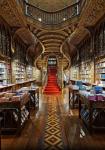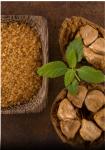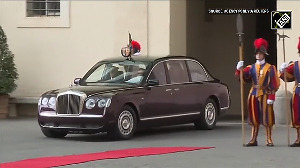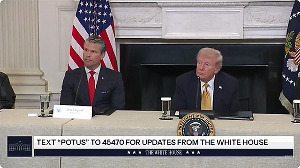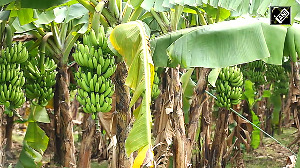Saddam Hussein's sons Uday and Qusay were among four persons killed in a six-hour gunfight with US troops in the northern Iraqi city of Mosul, the leader of the coalition troops, Lieutenant General Ricardo Sanchez, said in Baghdad on Tuesday.
Soldiers from the US Army's 101st Airborne Division had launched a raid following a tip from an Iraqi informant that the sons were in a palatial villa, according to him.
When US troops approached the building, gunmen inside opened fire with small arms.
The 'suspects barricaded themselves in the house' and 'resisted fiercely', he said.
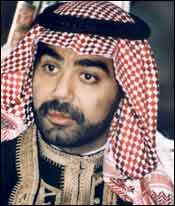
Gen Sanchez said the dead bodies were identified with the help of 'multiple sources' and taken to Baghdad.
"The bodies were in a condition where you could identify them," he said.
"We didn't just stumble across them."
Helicopters, Special Forces and 200 members of the 101st Airborne Division were involved in the operation, according to him.
The sons had a $15 million bounty each on their heads.
Profiles: Uday Hussein | Qusay Hussein
The bodies will be flown to the United States for DNA testing, CNN quoted an official as saying.
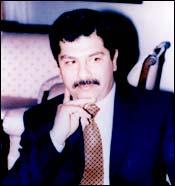
According to reports, one of the other two bodies appeared to be that of a teenage boy. The other body appeared to be that of a bodyguard.
US Defence Secretary Donald Rumsfeld briefed President George W Bush about the operation after it was over, CNN quoted a senior defence official as saying.
The hunt for Saddam is led by a US Special Operations team -- code-named Task Force 20 -- with support from the Central Intelligence Agency.
Qusay and Uday were the second and third-most wanted Iraqi leaders, and both were in the playing card deck of most-wanted Iraqis issued to US troops in Iraq. Uday was the ace of hearts and Qusay the ace of clubs.
Before the war, Qusay was put in charge of four key areas, including Baghdad and Tikrit -- his family's tribal home.
He was in charge of the country's intelligence network, the 80,000-strong Republican Guard and 15,000-member Special Republican Guard.
Uday headed the Saddam Fedayeen security force.
He was also in charge of the nation's Olympic committee, edited a leading newspaper, Babel, and was head of Youth TV, the country's most popular channel.
